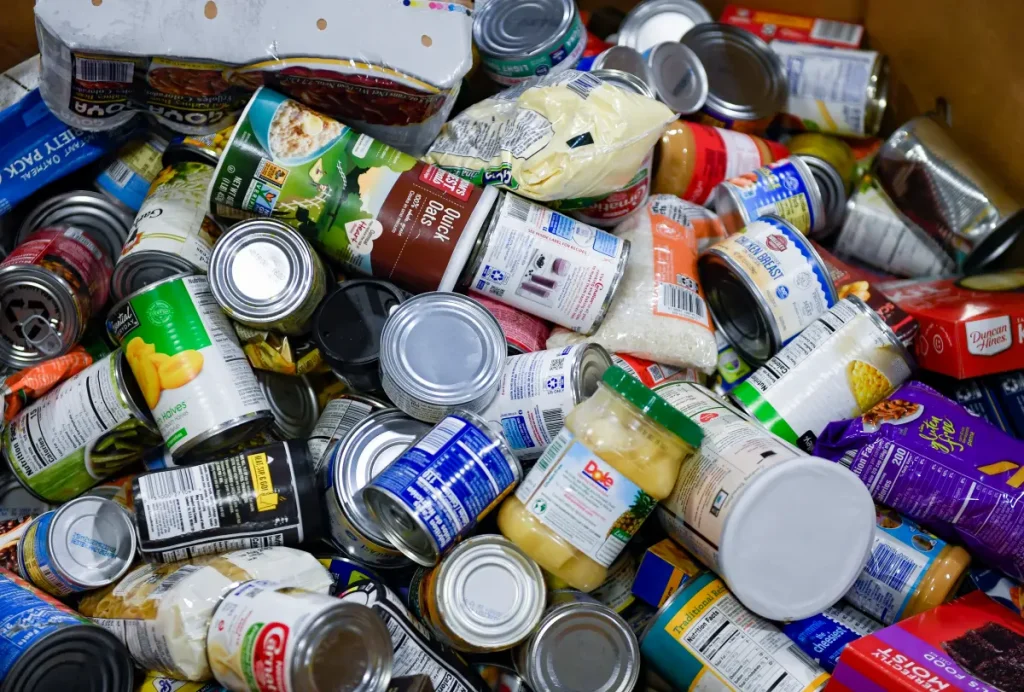Chickasha’s Compassionate Approach to Justice and Community Service
In the small city of Chickasha, Oklahoma, a remarkable initiative has transformed how the community views municipal penalties during the holiday season. Located about 40 miles southwest of Oklahoma City, this tight-knit community of 17,000 residents has embraced a program called “Food for Fines” that allows citizens to convert their legal obligations into acts of community service. Rather than simply collecting money from those with traffic violations or overdue library books, Chickasha’s municipal court and public library have created a system where food donations can reduce or even eliminate fines. This innovative approach serves multiple purposes – it helps those who might struggle to pay their fines, contributes to local food assistance programs during a critical time of need, and cultivates a sense of community responsibility. The program represents a thoughtful balance between maintaining accountability for minor infractions while acknowledging that punishment alone doesn’t always serve the greater good of the community.
The municipal court’s Food for Fines program operates in the weeks leading up to Thanksgiving, when food insecurity becomes particularly poignant against the backdrop of holiday celebrations centered around shared meals. The system is straightforward yet impactful: each non-perishable food item donated results in a $10 reduction in fines, allowing participants to reduce their financial obligations by up to $100. This practical approach makes justice more accessible to those who might be experiencing financial difficulties while simultaneously addressing hunger in the community. The program maintains accountability by requiring that items must be delivered to the Municipal Court by the individual who received the ticket, ensuring a personal connection to the act of giving. This creates a restorative element to the justice process, allowing those who have broken minor rules to make amends through a constructive contribution rather than just a monetary payment.
The success of Chickasha’s initiative is evident in the statistics from the previous year’s program, which saw 30 community members participate in the Municipal Court Food for Fines program. These contributions resulted in an impressive $2,826.50 in fine credits, which translates to hundreds of food items donated to help fellow residents in need. This figure represents not just a financial transaction but a significant community investment in fighting hunger. Each item donated represented both a step toward resolving a personal legal matter and a direct contribution to addressing food insecurity within the community. The program transforms what could be a purely punitive process into one that benefits the broader community, creating a ripple effect of positive outcomes from initially negative situations.
Once the municipal court’s program concludes, the Chickasha Public Library continues the spirit of compassion and community service with its own Food for Fines drive in December. The library’s approach is even more generous, allowing any amount of donated food to clear any amount of overdue library fines. This flexibility recognizes that the purpose of library fines is not punitive but rather to ensure materials are returned for others to use. By accepting food donations as an alternative form of “payment,” the library reinforces its role as a community resource rather than an enforcement institution. The program does maintain appropriate boundaries by noting that donations cannot cover fees for lost or damaged books, a reasonable limitation that preserves accountability while still offering flexibility and compassion where possible.
The Food for Fines programs in Chickasha exemplify a holistic approach to governance that recognizes the interconnected nature of community challenges and solutions. By linking the justice system with community service, these initiatives acknowledge that punishment alone does not always serve the best interests of society. Instead, they create pathways for individuals to make amends in ways that strengthen community bonds and address pressing needs. This approach transforms the relationship between citizens and local government, positioning city institutions as partners in community welfare rather than merely enforcement entities. It allows people who have committed minor infractions to preserve their dignity while making positive contributions to their community, potentially turning a negative interaction with the legal system into a catalyst for ongoing civic engagement.
The success of Chickasha’s Food for Fines programs offers valuable lessons for communities everywhere about creative approaches to justice and community service. In a time when many municipalities struggle with overcrowded courts and jails for minor offenses, and when food insecurity affects millions of Americans, these programs demonstrate how local governments can address multiple challenges simultaneously through innovative thinking. By allowing individuals to resolve their debts to society through direct community contribution, Chickasha has created a system that maintains accountability while fostering compassion and community connection. As the holiday season approaches, this small Oklahoma city provides an inspiring example of how justice can be administered with both fairness and heart, reminding us that sometimes the most effective solutions are those that recognize our shared humanity and interconnectedness.


